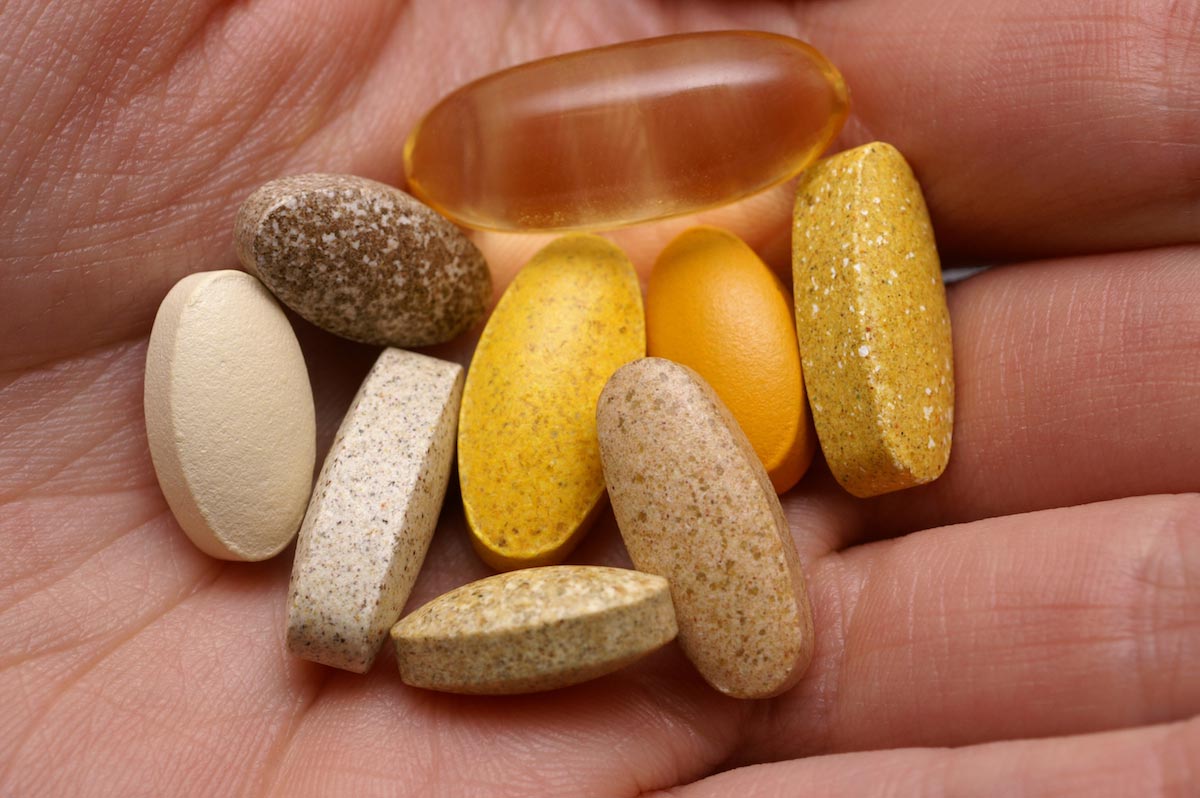Natural strategies to alleviate the symptoms of polycystic ovarian syndrome
04/25/2019 / By Zoey Sky

One of the symptoms of polycystic ovarian syndrome (PCOS) is the higher-than-normal production of the male hormone testosterone. This can cause symptoms such as hair growth and weight gain, which can be relieved with remedies, including vitamin supplementation.
What is PCOS?
Women with PCOS suffer from a hormone imbalance that makes them skip menstrual periods. PCOS can also make it difficult for women to get pregnant and can increase the risk of long-term health problems like diabetes and heart disease.
Some common PCOS symptoms include:
- Acne – Testosterone can make the skin oilier than usual, which then results in breakouts on areas like the face, chest, and upper back.
- Darkening of the skin – Dark patches of skin may form in body creases like those on the neck, in the groin, and under the breasts.
- Excess hair growth (hirsutism) – Over 70 percent of women with this condition grow hair on their face and body, such as on their back, chest, and stomach.
- Headaches – PCOS causes hormone changes that may trigger headaches in some women.
- Heavy bleeding – The uterine lining takes longer to build up, so the periods a woman with PCOS gets are heavier than normal.
- Irregular periods – Since a lack of ovulation prevents the uterine lining from shedding every month, some women with PCOS only get about eight periods a year.
- Male-pattern baldness – Hair on the scalp gets thinner and falls out.
- Weight gain – About 80 percent of women with PCOS are overweight or obese.
The exact cause of PCOS remains unknown, but the following natural remedies can help address some of the symptoms of the condition. Consult a healthcare professional to determine if the treatments below will interact with any medication that you are currently taking.
100% organic essential oil sets now available for your home and personal care, including Rosemary, Oregano, Eucalyptus, Tea Tree, Clary Sage and more, all 100% organic and laboratory tested for safety. A multitude of uses, from stress reduction to topical first aid. See the complete listing here, and help support this news site.
Chromium
If you have PCOS, increasing your intake of chromium can improve insulin efficiency. Even though chromium is only present in trace amounts in the body, it enhances the bioavailability of insulin. PCOS can make your body more insulin-resistant, but chromium may help negate some of these effects.
Chromium also helps your body metabolize fats, carbohydrates, and protein in the body.
Foods that contain chromium include broccoli, English muffins, green beans, orange juice, red wine. Alternatively, you can take chromium supplements. The recommended dosage for women ages 19 to 50 years old is 25 micrograms of chromium per day.
Insulin-controlled diet
PCOS affects insulin levels, and you can manage your symptoms by following a diet which includes foods that won’t make your insulin levels spike dramatically.
An insulin-controlled diet usually includes foods like beans and other legumes, brown rice, green vegetables, whole-grain bread, and most fruits (except bananas and grapes).
If you’re going on an insulin-controlled diet, you need to avoid or strictly limit your consumption of foods that are high in fat, starch, and sugar such as cakes, cookies, pasta, prepackaged foods, red meat, white bread, and white rice.
Saw palmetto
The fruit of the saw palmetto (Serenoa repens) tree is used to make a supplement that can help reduce testosterone levels of women with PCOS.
Saw palmetto supplement prevents testosterone from being converted into dihydrotestosterone, which causes hair growth in women with PCOS. Take a daily supplement of about 250 to 350 milligrams per day to address your symptoms.
While saw palmetto has very few side effects, do not take it on an empty stomach. The supplement isn’t recommended for women who are pregnant or breastfeeding.
Additional vitamin supplements
Other options to manage PCOS naturally includes taking a B-vitamin complex that can help balance blood sugar and control weight. B2 and B3 hormones can also improve thyroid hormone production in the body. (Related: PCOS: Understanding it and treating symptoms naturally.)
Zinc supplements can help balance blood sugar, control appetite, and regulate insulin. The recommended daily intake of zinc is seven milligrams. You can also consume foods that contain zinc, such as baked beans, chickpeas, or low-fat yogurt.
If you have PCOS, try natural options such as an insulin-controlled diet or try saw palmetto supplements to manage your symptoms.
Sources include:
Tagged Under: alternative medicine, chromium, girls health, insulin, insulin-controlled diet, natural cures, natural medicine, nutrients, PCOS, polycystic ovarian syndrome, remedies, saw palmetto, supplements, testosterone levels, vitamins, women's health



















